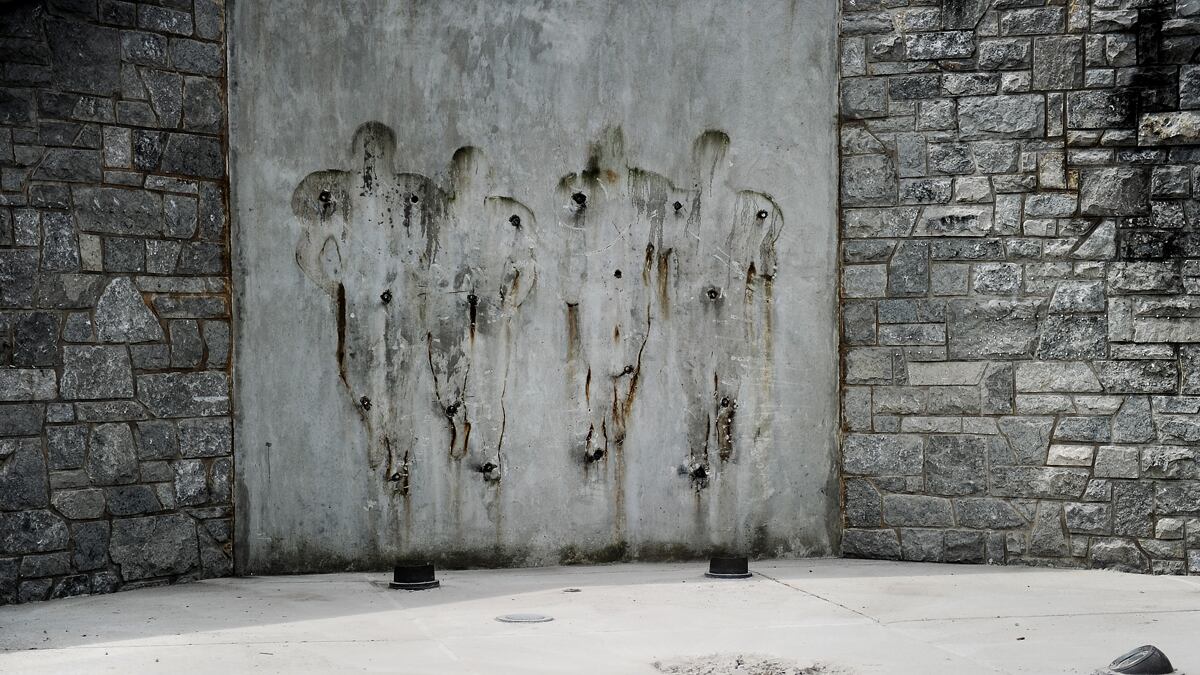Jerry Sandusky is gone, locked away in jail. Joe Paterno—the man and the statue—is gone. But Penn State football has been narrowly spared.
Today the NCAA hammered the university where it hurts the most: in the pocketbook and on the playing field. NCAA president Mark Emmert announced a $60 million fine that must go to help sex-abuse victims. He also said the Nittany Lions are ineligible to play in postseason games for the next four years. In addition to these and other sanctions, the college also forfeits all 112 football wins from 1998 to 2011.
The severe NCAA sanctions “are warranted by the conspiracy of silence that was maintained at the highest levels of the university in callous and reckless disregard for the children,” Emmert said during a Monday press conference.
And while people want to focus on Penn State football, “the fundamental story of this horrific chapter should focus on the innocent children and the powerful people who let them down,” he added.
People who work with abuse victims and survivors couldn’t agree more.
“We want the country to stop talking about football,” says Kristen Houser, a State College native and VP of communications and development for the Pennsylvania Coalition Against Rape (PCAR). “This isn’t about a coach’s legacy. It’s not about whether or not we fill up Beaver Stadium. That’s not what this is about. This is about child sexual abuse.”
Houser calls the $60 million fund a “phenomenal” idea. Her organization is currently engaged in a three-year partnership with Penn State, which began in January in an effort to change the culture of Penn State. The sanctions will help accomplish this, Houser says, by forcing the university to focus on education—not bowl games.
This punishment, Houser says, is “about whether adults anywhere in America are willing to learn the facts and take action to protect children, whether they’re willing to intervene when they see offending behaviors involved in grooming or when they see each other whispering about rumors but not taking it to officials to investigate.”
The Paterno legacy, the Paterno statue, the Peachy Paterno ice-cream flavor—that’s not the point. And this is a start of a positive change in the conversation.
Still, it’s unlikely that, in the minds of the survivors who were violated and sexually abused as children in a Penn State shower and elsewhere by Sandusky, any sanctions against the Nittany Lions would have been enough. As a survivor of such abuse myself, I know how long and hard the road to recovery is. It has taken me most of my adult life—that's about three decades—to truly feel like I can trust not only other people, but my own internal compass, which now guides me in making sound decisions that are no longer colored by 13 years of sex abuse. This is why the sanctions don't even come close to undoing the damage that's been done to Sandusky's victims.

More surprising, to some, is the likelihood that, for many in the Penn State community—even, possibly, victims themselves—the NCAA sanctions are too much.
That’s because in State College, people don’t just attend the football games. They plan their lives around the games. They don’t just follow the team. They are the team. And small-town merchants depend on their livelihood from the people who attend the games. Penn State football reigns supreme in this tiny corner of the world. Even a few of Sandusky’s victims testified in court that they still attend the games and even enjoy them.
For Dora McQuaid, a New Mexico poet who attended PSU as an undergrad and grad student, then went on to teach there during the time it harbored Sandusky, the culture has been ingrained. “I am very, very aware of the ... football program’s influence over the students and the greater community.”
McQuaid’s own familiarity with sexual-violence issues comes from her work while a PSU faculty member from 1999 to 2006, as well as in the field of social justice and advocacy. She’s concerned about the negative impact the sanctions could have. Why should the community have to suffer for the actions of a few powerful people?
The sanctions “affect a tremendous number of people beyond the small number ... in leadership positions at Penn State who made those decisions,” McQuaid says. “And they affect the community in very negative ways.”
State College resident Kate Branford is also worried. She believes the sanctions are “basically ruining the recruiting opportunities for Penn State.”
Branford said, “It’ll be hard to recruit anybody, especially without scholarships and a chance to go to a bowl game. I don’t think that’s fair, because the people that are there now have nothing to do with the horrible things that have occurred.”
Houser, the PCAR advocate, admits that some pain must be shared for the scandal’s true victims—those affected by sexual assault—to recover. Research shows healing can only occur when people are willing to listen, believe, and validate victims. “The more support people have, the more smoothly the process can go,” Houser said.
Today’s NCAA sanctions have taken one giant step toward helping Sandusky’s victims, and survivors of sex abuse everywhere, make that process much smoother.






